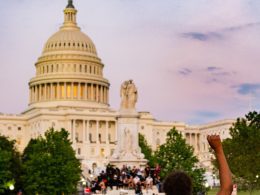As the saying goes, knowledge is power. And when it comes to shaping public policy, academics are often the ones wielding that power. From healthcare to education to the environment, policymakers often turn to experts in academia to inform their decisions.
But what exactly is the role of academics in policy debates? And how can they effectively translate their research into actionable policy proposals?
For starters, academics can provide policymakers with a wealth of data and analysis on a given issue. Through their research, they can identify key trends, assess the effectiveness of current policies, and make recommendations for future action. This data-driven approach can help policymakers make informed decisions that are grounded in evidence.
Moreover, academics can offer a fresh perspective on policy debates. Unlike politicians, who may be more concerned with winning votes than finding solutions, academics are often focused solely on finding the best possible outcome for a given issue. Their non-partisan approach can be invaluable in finding common ground and crafting policies that work for everyone.
Of course, the process of translating academic research into policy proposals can be challenging. Academics must be able to effectively communicate their findings to policymakers in a way that is accessible and actionable. This requires a deep understanding of the political landscape and the ability to craft messages that resonate with policymakers and the public.
To this end, academics must be willing to engage with policymakers and the public in a meaningful way. This may involve testifying before congressional committees, participating in policy roundtables, or even writing op-eds for major news outlets. By becoming active participants in the policy process, academics can help ensure that their research has real-world impact.
However, academics must also be mindful of potential conflicts of interest. For example, a researcher who receives funding from a particular industry may be biased in their recommendations. It’s important for academics to be transparent about their funding sources and to disclose any potential conflicts of interest.
Overall, the role of academics in policy debates is a critical one. By providing policymakers with data-driven analysis and a fresh perspective, academics can help shape policies that have real-world impact. However, it’s up to academics to effectively translate their research into actionable policy proposals and to engage with policymakers and the public in a transparent and ethical way.












